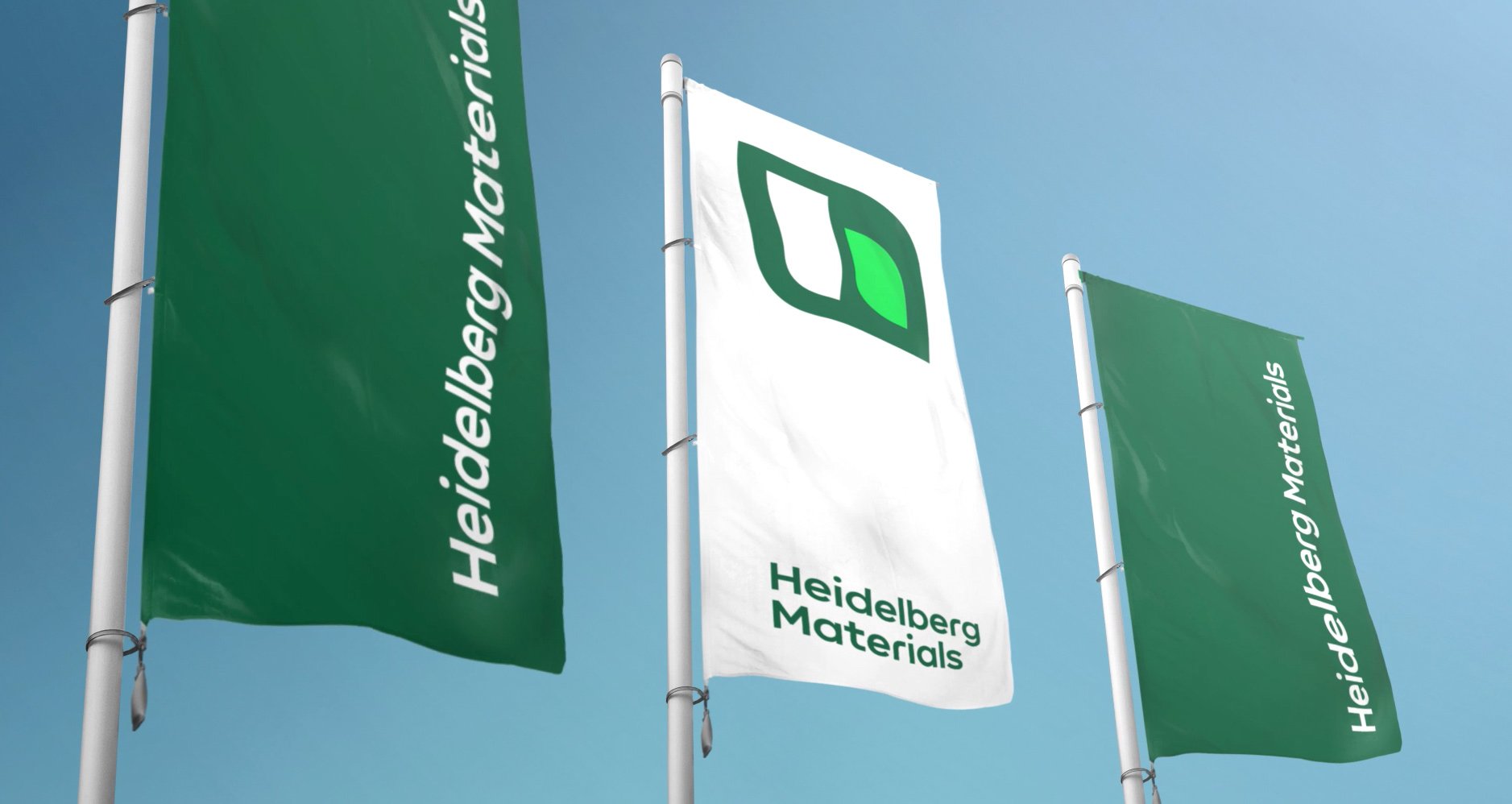Dortmund Bus Depot
In the Mengede district of Dortmund, Germany, the new barrier-free bus station will be equipped with environmentally friendly lanes, made of a concrete produced with the photocatalytic cement TioCem. Passengers and the environment benefit from improved air quality.
In another part of the country, Mengede with just under 40,000 inhabitants would be medium-sized city of its own, whose importance would have grown far beyond the character of a small town. In the Ruhr Metropolitan Region, Mengede is a lively urban district in the northwest of Dortmund. Planners of infrastructure such as roads and squares within this vast urban area of the Westphalian metropolis have integrated an awareness of the impact from pollutants on the population and the environment. Even before the European Union set new Europe-wide limits for annual average nitrogen dioxide of 40 µg/m³, environmental concerns were on the local agenda. Several parking structures and roads had already been constructed using photocatalytic concrete, such as the "Dortmunder U" (the former tower of the Union-Brauerei) and the central Wallring business district. Numerical simulations have shown that air quality can be noticeably improved by this type of concrete.
The urban planners also opted for surfaces made of special concrete for the fundamental redesign and construction of the new bus station in Mengede. “We take environmental concerns seriously. Even before the EU regulations, we had chosen to use concrete bus lanes because of our good experience in the past with the stability and high-grade appearance of this durable building material,” says Jens Wilky, project manager at the civil engineering office in Mengede.
The aim of the redesign and reconstruction work is to make the bus station attractive, accessible and functional for people on the move. In the future, instead of five parallel bus lanes, a central island will be created, which will be approached by the buses. An octagonal raised flower bed with eight wooden benches is to be built in the middle to serve as seats for the waiting passengers. In the very center, a large oak tree with a trunk circumference of 25 to 30 centimeters will be planted. Bus shelters, bicycle racks, and display boards with passenger information round off this modern public transport hub.
After completion, seven stops will be available around the central island for the different bus types of the city lines. A total of 264 buses will arrive and depart every day at the nearly 1,000 m2 bus island. It made sense to build the bus lanes with photocatalytic concrete, which promotes the decomposition of nitrogen oxides.
In order to prevent disrupting regular operation of the existing bus station during construction, the new bus lanes were built in two phases. FR Richter Bauunternehmung completed the concrete work for construction company Rohde Tief- und Straßenbau. Site manager Micha Drebes ordered a total of 180 cubic meters of concrete, 45 cubic meters of which with TioCem. Five centimeters of photocatalytic concrete were laid on 19 centimeters of base concrete using a concrete pump.
“The concrete pavement produced with TioCem has an attractive broom finish that appears somewhat brighter than a conventional concrete surface,” says Micha Drebes. Titanium dioxide is used as a high-quality pigment to brighten concrete in some construction projects. The special catalyst titanium dioxide (TiO2) in TioCem causes harmful nitrogen oxides (NOx) to be broken down from the air when exposed to light. Simply put, harmful nitrogen oxides are converted into water-soluble nitrates, which accumulate in small quantities. The process works even in cloudy conditions and – since TioCem is fully integrated into the concrete – it does not consume itself during the conversion process. This makes for a permanent photocatalytic environmental benefit.
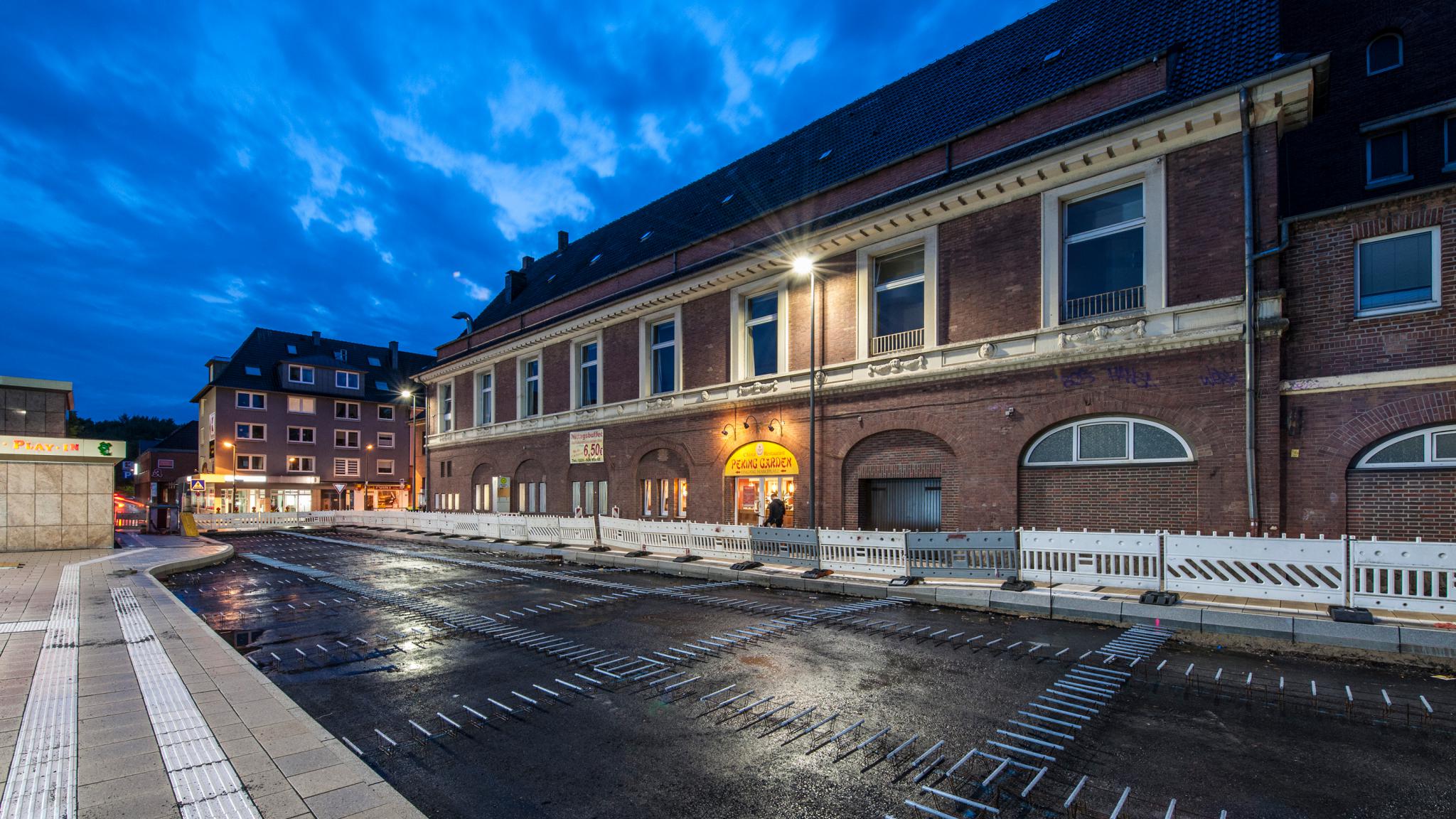
Dortmund Bus Depot, Germany. In the Mengede district of Dortmund, Germany, the new barrier-free bus station will be equipped with environmentally friendly lanes, made of a concrete produced with the photocatalytic cement TioCem.
HeidelbergCement / Steffen Fuchs
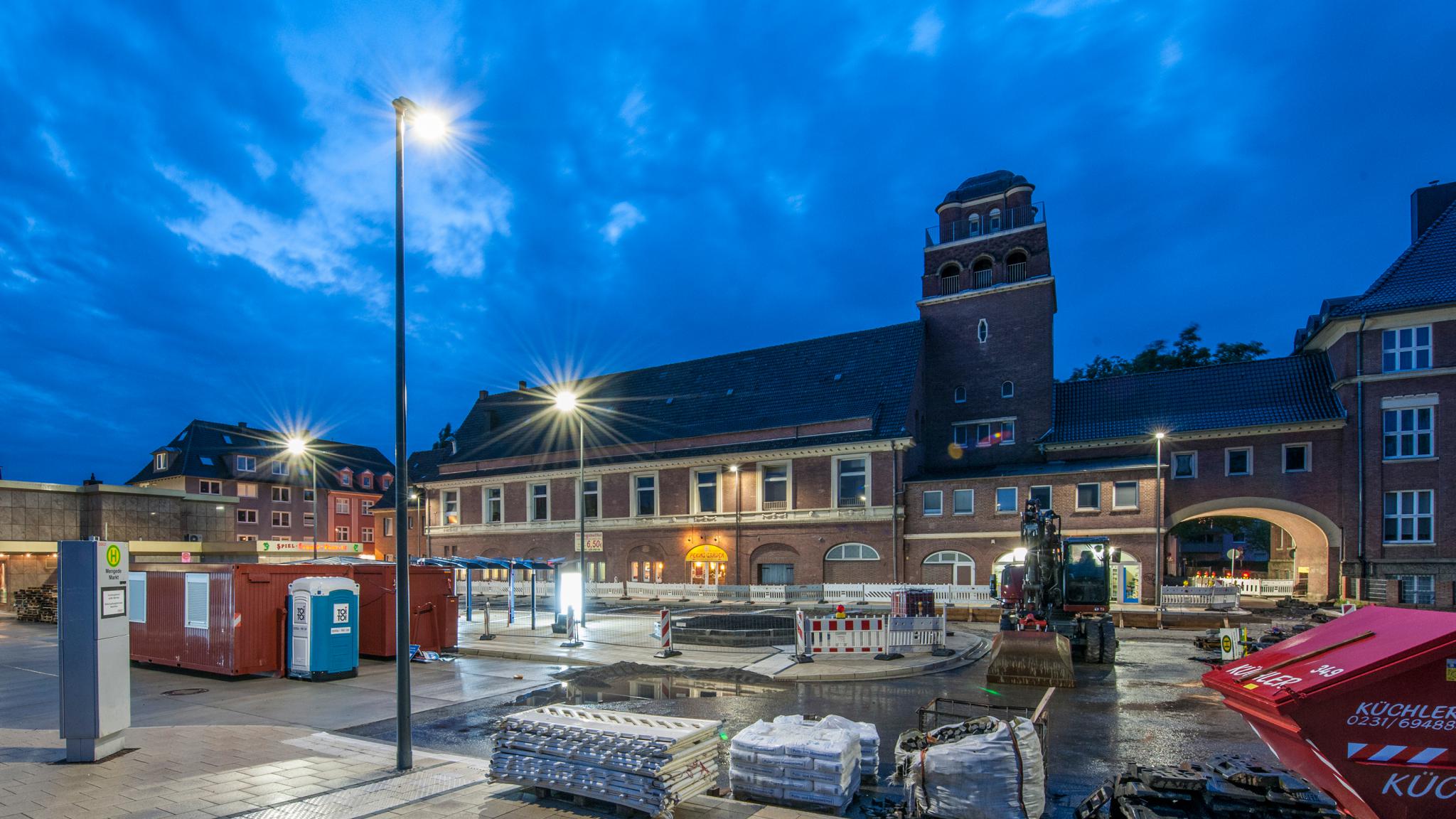
Dortmund Bus Depot, Germany. In the Mengede district of Dortmund, Germany, the new barrier-free bus station will be equipped with environmentally friendly lanes, made of a concrete produced with the photocatalytic cement TioCem.
HeidelbergCement / Steffen Fuchs
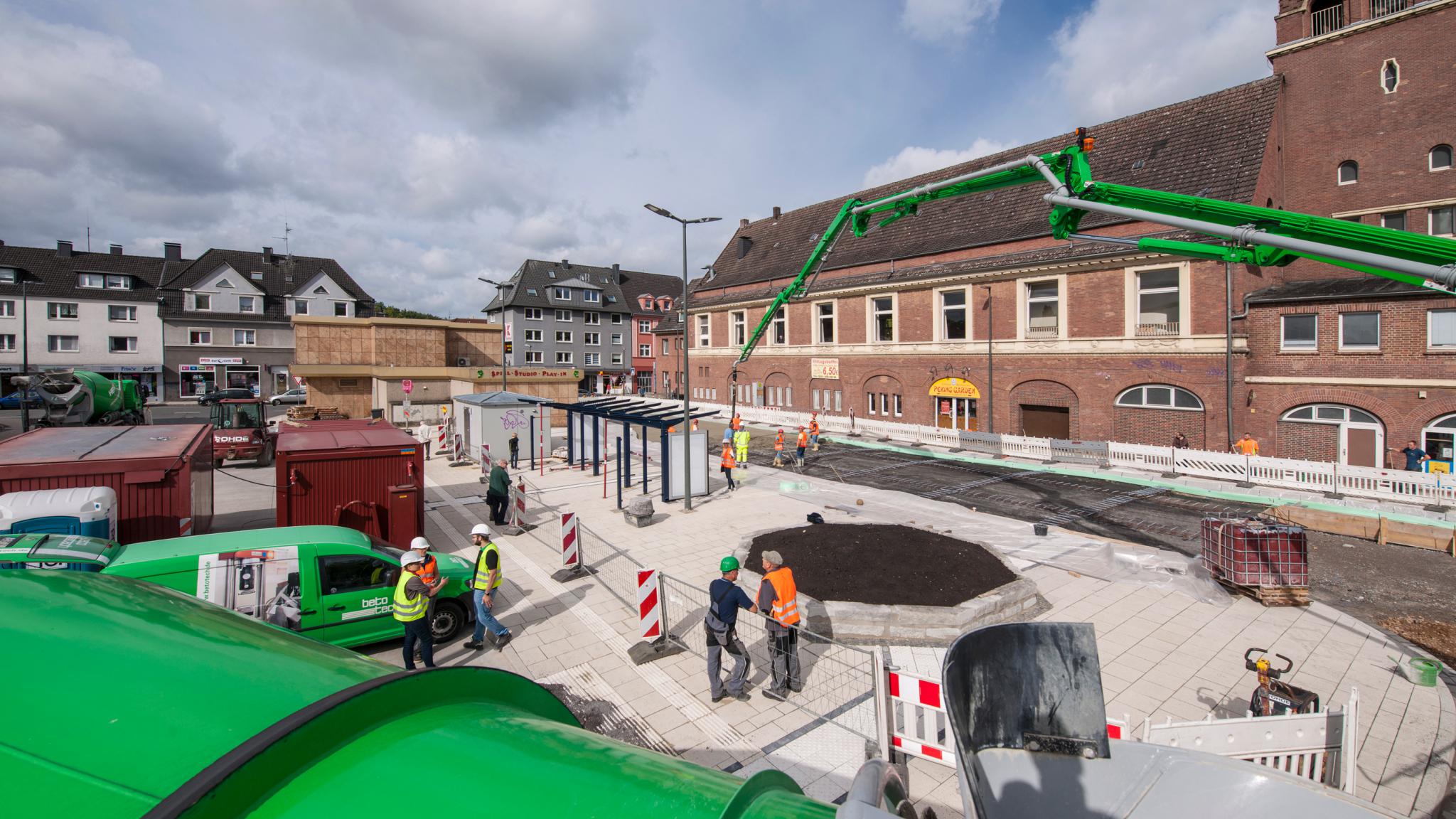
Dortmund Bus Depot, Germany. In the Mengede district of Dortmund, Germany, the new barrier-free bus station will be equipped with environmentally friendly lanes, made of a concrete produced with the photocatalytic cement TioCem.
HeidelbergCement / Steffen Fuchs

Dortmund Bus Depot, Germany. In the Mengede district of Dortmund, Germany, the new barrier-free bus station will be equipped with environmentally friendly lanes, made of a concrete produced with the photocatalytic cement TioCem.
HeidelbergCement / Steffen Fuchs

Dortmund Bus Depot, Germany. In the Mengede district of Dortmund, Germany, the new barrier-free bus station will be equipped with environmentally friendly lanes, made of a concrete produced with the photocatalytic cement TioCem.
HeidelbergCement / Steffen Fuchs
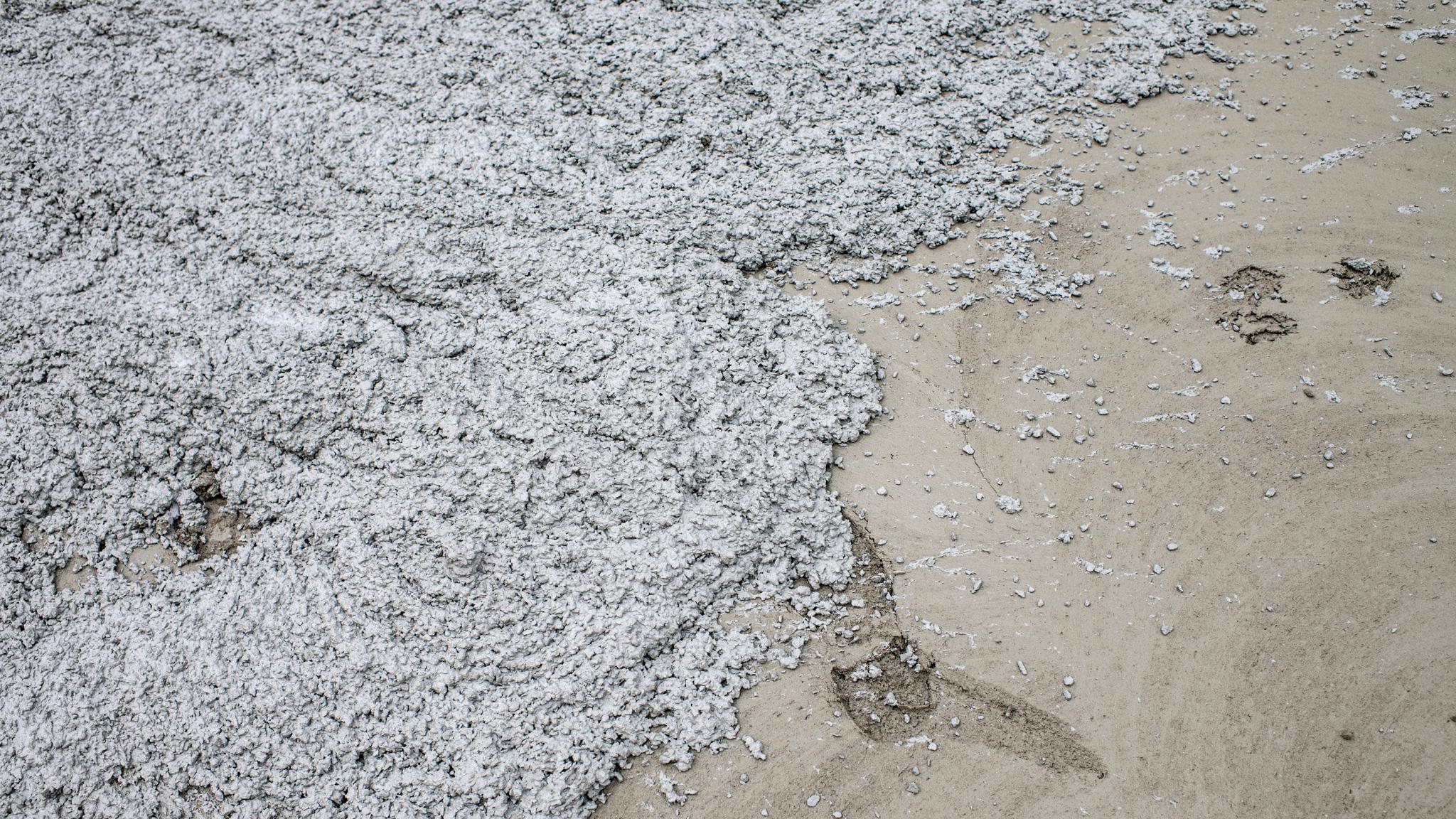
Dortmund Bus Depot, Germany. In the Mengede district of Dortmund, Germany, the new barrier-free bus station will be equipped with environmentally friendly lanes, made of a concrete produced with the photocatalytic cement TioCem.
HeidelbergCement / Steffen Fuchs

Dortmund Bus Depot, Germany. In the Mengede district of Dortmund, Germany, the new barrier-free bus station will be equipped with environmentally friendly lanes, made of a concrete produced with the photocatalytic cement TioCem.
HeidelbergCement / Steffen Fuchs

Dortmund Bus Depot, Germany. In the Mengede district of Dortmund, Germany, the new barrier-free bus station will be equipped with environmentally friendly lanes, made of a concrete produced with the photocatalytic cement TioCem.
HeidelbergCement / Steffen Fuchs

Dortmund Bus Depot, Germany. In the Mengede district of Dortmund, Germany, the new barrier-free bus station will be equipped with environmentally friendly lanes, made of a concrete produced with the photocatalytic cement TioCem.
HeidelbergCement / Steffen Fuchs

Dortmund Bus Depot, Germany. In the Mengede district of Dortmund, Germany, the new barrier-free bus station will be equipped with environmentally friendly lanes, made of a concrete produced with the photocatalytic cement TioCem.
HeidelbergCement / Steffen Fuchs

Dortmund Bus Depot, Germany. In the Mengede district of Dortmund, Germany, the new barrier-free bus station will be equipped with environmentally friendly lanes, made of a concrete produced with the photocatalytic cement TioCem.
HeidelbergCement / Steffen Fuchs

Dortmund Bus Depot, Germany. In the Mengede district of Dortmund, Germany, the new barrier-free bus station will be equipped with environmentally friendly lanes, made of a concrete produced with the photocatalytic cement TioCem.
HeidelbergCement / Steffen Fuchs
